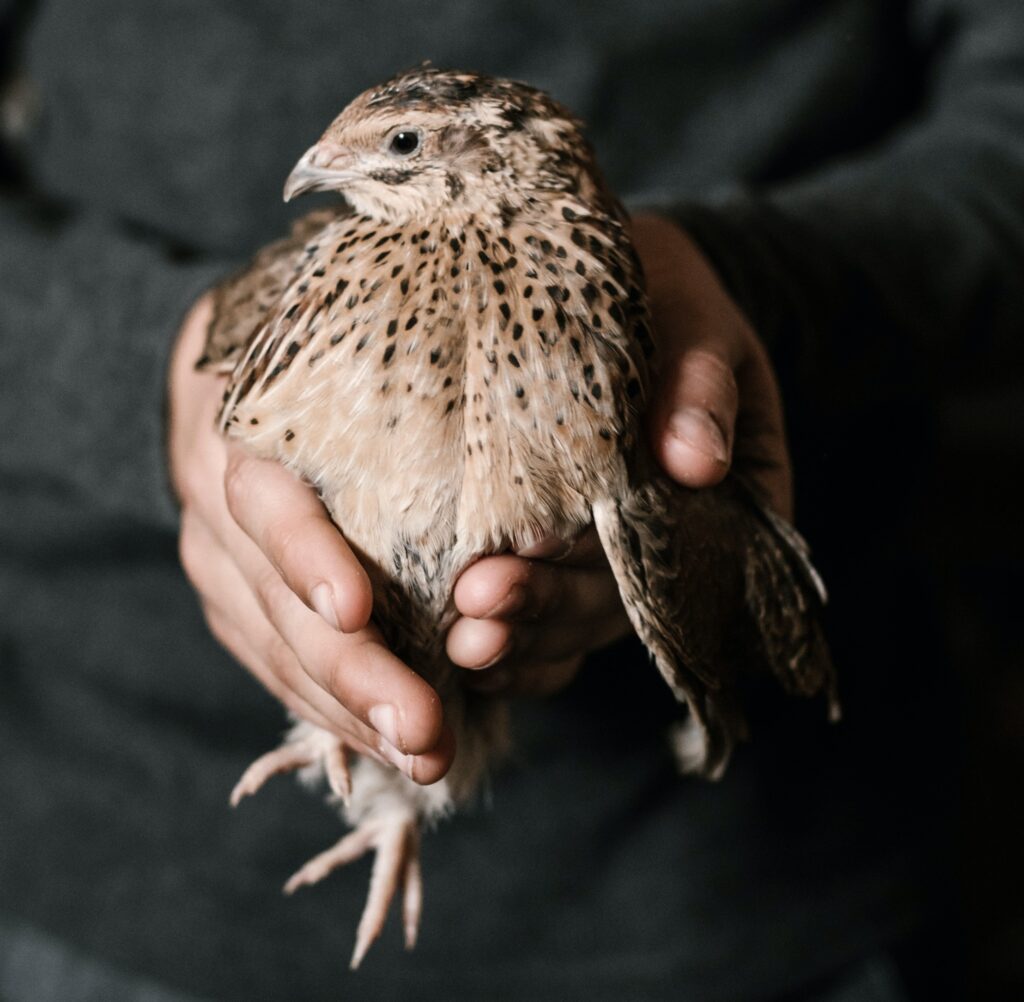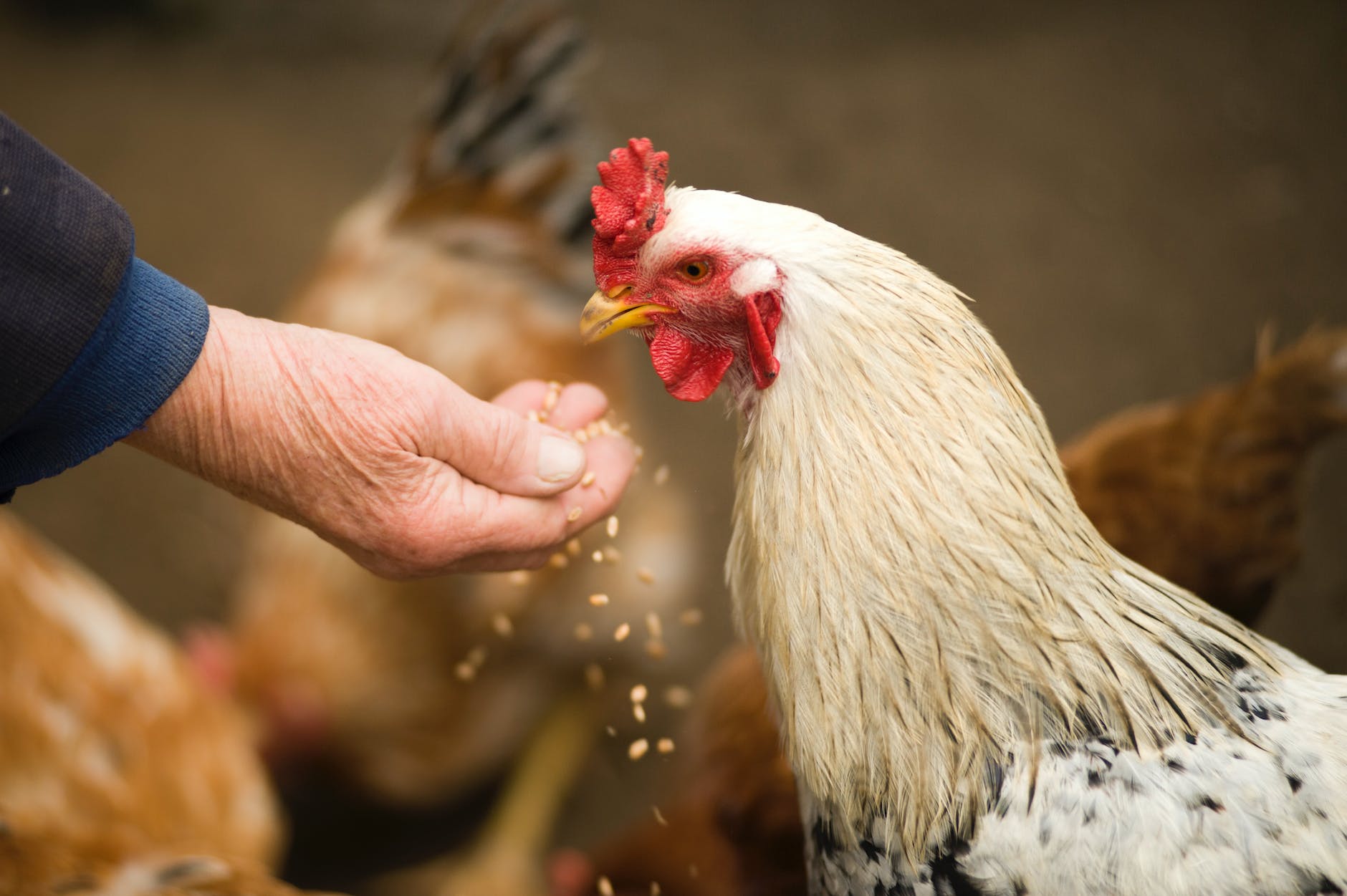If you’re considering adding some feathered friends to your backyard flock, you might be torn between two popular options: quail and chickens. Both birds have their unique charm and benefits, but which one is the right choice for your backyard? In this blog post, I’m excited to explore the pros and cons of choosing quail versus chickens for your backyard homestead, based on my personal experiences and insights. So, let’s dive in and see which feathered companions might be the perfect fit for you!
Quail:
Pros:
- Small Size: Quail are pint-sized poultry, making them ideal for backyard setups with limited space. Their compact size means you can keep a larger flock in a smaller area compared to chickens.
- Low Maintenance: Quail are relatively low-maintenance compared to chickens. They require less space, produce less waste, and are generally quieter and less disruptive, making them perfect for urban or suburban environments.
- Prolific Egg Production: Quail are egg-laying machines, with some breeds like Coturnix quail laying upwards of 200 eggs per year. Their small eggs are packed with protein and have a delicate flavor, making them a favorite among culinary enthusiasts.
- Fast Maturity: Quail reach maturity quickly, with hens typically starting to lay eggs at around 6-8 weeks of age. This means you’ll be enjoying fresh quail eggs in no time after hatching your chicks.
- Unique Personalities: Despite their small size, quail have big personalities. They’re curious, social birds that can be surprisingly interactive and entertaining to watch. Plus, their gentle clucking and soft calls add a peaceful ambiance to your backyard.
Cons:
- Fragile Nature: Quail are delicate birds that can be susceptible to stress, disease, and predation. They require careful handling and attention to ensure their health and well-being.
- Flighty Behavior: Quail can be skittish and easily startled, especially when young. Proper handling and socialization from an early age can help tame their flighty tendencies.
- Limited Meat Production: While quail are valued for their eggs, they are not as commonly raised for meat as chickens. Quail meat is considered a delicacy in many cuisines but may not be as readily available or economical to produce compared to chicken meat.
Chickens:
Pros:
- Versatility: Chickens are incredibly versatile birds that can be raised for eggs, meat, or both. They come in a wide range of breeds, each with its unique characteristics and attributes.
- Hardiness: Chickens are generally hardy birds that can adapt to a variety of climates and environments. With proper care and housing, they can thrive in backyard settings across the globe.
- Diverse Egg Colors and Sizes: Chickens lay eggs in a rainbow of colors, from classic white and brown to blue, green, and even speckled. Their eggs also come in a range of sizes, from petite bantam eggs to jumbo-sized eggs from larger breeds.
- Docile Nature: Many chicken breeds are known for their docile and friendly personalities, making them excellent pets and backyard companions. With proper socialization, chickens can become quite tame and even enjoy being handled.
- Dual-Purpose Breeds: Some chicken breeds are specifically bred for both egg and meat production, offering the best of both worlds for backyard homesteaders.
Cons:
- Space Requirements: Chickens require more space than quail due to their larger size and more extensive ranging habits. A spacious coop and outdoor run are essential for keeping chickens happy and healthy.
- More Waste: Chickens produce more waste than quail, which can be a consideration for backyard keepers with limited space or strict zoning regulations.
- Louder Calls: Chickens are known for their vocalizations, including clucking, crowing, and squawking. While some backyard keepers enjoy the sounds of their flock, others may find it disruptive or bothersome, especially in urban or densely populated areas.
- Longer Time to Maturity: Chickens take longer to reach maturity compared to quail, with hens typically starting to lay eggs at around 4-6 months of age. This means you’ll have to wait longer to enjoy fresh eggs from your flock.
Conclusion:
In the end, whether you choose quail or chickens for your backyard homestead depends on your personal preferences, space constraints, and goals for keeping poultry. Both birds offer unique benefits and challenges, and each can bring joy and fulfillment to your backyard flock.
If you’re looking for small, low-maintenance birds that excel at egg production, quail might be the perfect choice for you. On the other hand, if you have more space to spare and are interested in raising birds for meat as well as eggs, chickens might be the better option.
Whatever you decide, raising poultry can be a rewarding and enjoyable experience that connects you to the rhythms of nature and provides fresh, nutritious food for you and your family. So, whether you’re team quail or team chickens, here’s to happy homesteading and abundant eggs in your backyard!


